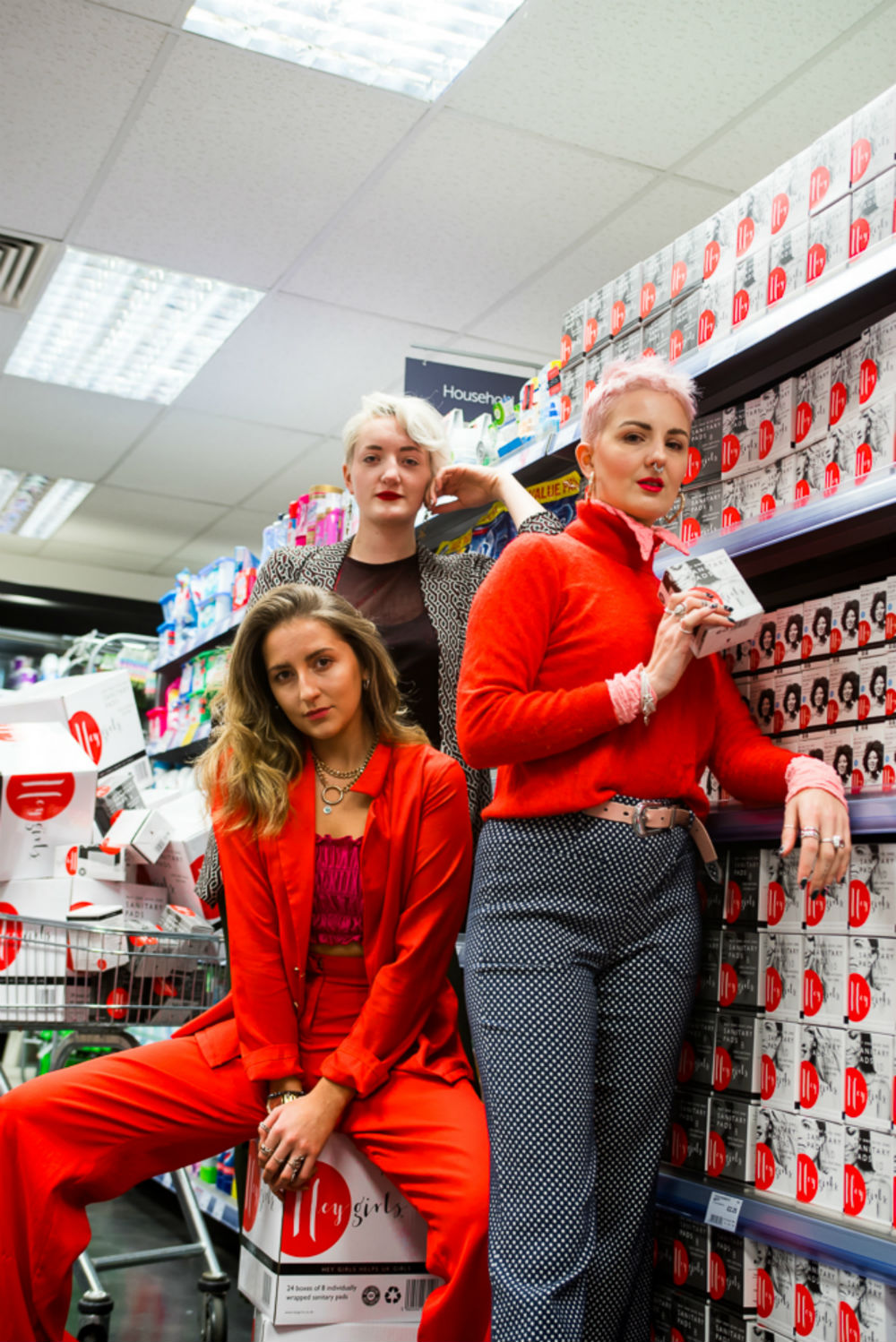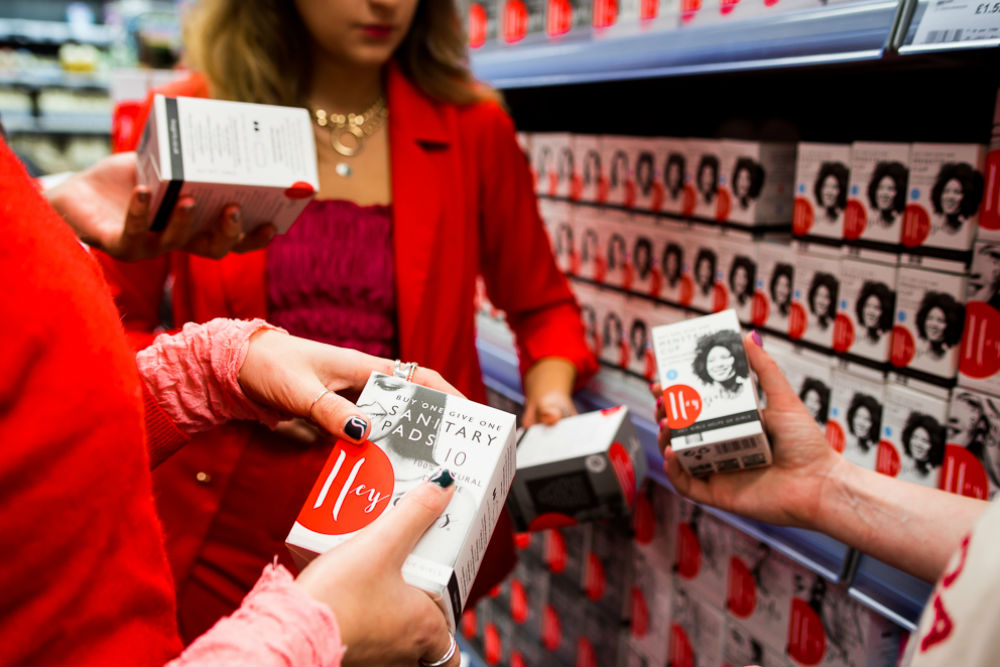Only days after winning the Great British Entrepreneurs Awards Hey Girls are now making it local by launching their Buy One Give One Plastic Free Period Products in Scot-mid Stores across their home city of Edinburgh.
With brand and Buy Social Ambassador Caitlin Moran magically appearing on Hey Girls product boxes via a virtual reality app and other high-profile influencers joining the campaigns Hey Girls goes from strength to strength.
Now available in Asda, Waitrose and Coop stores across the UK, Scot-mid becomes the latest supermarket to get behind the Scottish brand taking the plastic of out period products, featuring 14 of their stores across Scotland.

Hey Girls Senior Business Development Lead Becca Bell said: “With the support of these fantastic influencers Hey Girls are moving the menstrual product whispers out from the back of the bathroom cabinet and opening up social media conversation that debunk menstrual myths and taboos”.
Founded just 18 months ago by Celia Hodson with the help of her two daughters Hey Girls sells a full range of Period Products on a ‘buy one give one’ model – meaning for every pack purchased another is donated to a girl or woman in need in the UK. To date Hey Girls has donated over 5.6 million period products across the UK.

Kirsty George, Local Sourcing Manager for Scot-mid said: “At Scotmid we are passionate about supporting Scottish businesses – ones that share our values and principles – and the ethos behind the Hey Girls products offers our customers exactly that. We’re really delighted that our stores across the country will be playing a part in helping to tackle such a prominent issue such as period poverty. It’s exciting that our members and customers will now have access to these brilliant products.”
Hey Girls Daytime and Overnight Sani Pads (£3.25) and Menstrual Cups in sizes small and large (£8.95) will be available to buy from selected Co-op stores across the UK.
Hey Girls was founded by Celia Hodson and her daughters Kate and Becky, and launched in January 2018. It all started with a heated discussion that resulted in a simple goal – how to tackle ‘period poverty’ in a sustainable way.
